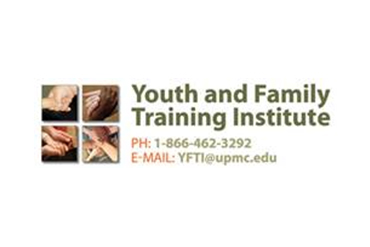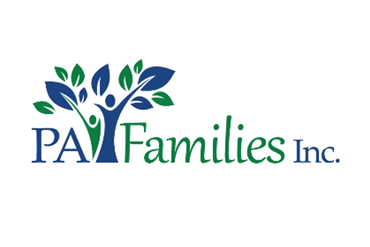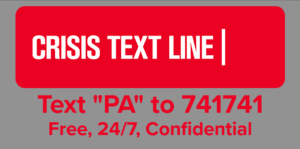HOSTING A COACH APPROACH TO ADAPTIVE LEADERSHIP TRAINING
If you are interested in this training and would like to learn more, contact Mark Durgin, Project Director of the PA Care Partnership durginm@upmc.edu
What is the Coach Approach?
The Coach Approach to Adaptive Leadership was developed to support health and human services organizations in building coaching skills as core skills for adaptive leadership. This connects coaching as a daily approach for how to respond to complexity in times of constant uncertainty. This approach is important to be adopted and modeled by leaders/managers who are responsible for orchestrating all types of organization, culture, and systems change, and can ultimately be learned and used by all members within the organization or setting.
Why use the Coach Approach?
Coaching can focus on specific skills and abilities to reach targeted outcomes, enhance performance and develop deeper levels of critical thinking. Coaching has the potential to be utilized in all types of work situations and at all levels of the organization system. The Coach Approach to Adaptive Leadership curriculum was designed to orient participants to a coaching model, provide opportunities to practice coaching and to customize the coaching application to the unique needs of each organization, targeting various levels within the organization.
Who should attend the training?
- Youth, Family, Child Welfare, Juvenile Justice, Human Services, Behavioral Health, Providers, Community Partners, and anyone else who is interested.
At the training, it is essential for formal leaders to be in the room to support the training and its concepts and to demonstrate their willingness to coach and be coached. It is essential for the participants to attend the training by choice. This training is not remedial and loses effectiveness if any participant does not wish to attend.
For the highest likelihood of coaching becoming part of a culture shift, participants attending the training could be strategically organized. This can be by role (all directors), department (all HR), or physical locations (one office) so that coaching becomes a daily part of their work beyond the two-day training. Ideally, training should start with the leaders of the organization, so that the lessons, stories, and questions raised can inform further training.
How long does the training last?
The curriculum takes approximately 12-14 hours to deliver over two days, which includes two 10-minute breaks and a 45-minute lunch each day. The curriculum is sequential – each part of the training builds upon the step prior. People will need to attend both consecutive days of the training, to reflect on Day 1 and discuss how to apply it on Day 2. This helps participants to process and apply the coach approach with commitment.
Customizing this Training to Your Organization’s Needs:
Tailoring the Coach Approach is essential to manage the unique needs and complexity of your organization.
- The morning of Day 1 is focused on defining coaching and presenting the mindsets of effective coaching. We expect participants to conclude the morning sessions knowing how they will be expected to use coaching within the organization. Make sure that the organization's formal leaders are represented. Their input is required to speak on matters of complexity and change and emphasize their commitment to coaching as a tool to reach the organization’s goals.
- During Day 2 there will be the opportunity for the Facilitators and Leaders to address participants’ questions about how they will be using coaching, what their next steps will be, how to talk about coaching with others.
Coaching Demonstrations:
The training features several coaching demonstrations. This will include live coaching with individual participants or previously recorded coaching conversations on video. No coaching demonstration will consist of role-playing or pre-scripted demonstrations. To provide an example of effective coaching in the moment, and publicly address the participant’s concerns, the facilitator will be using coaching as their first instinct in response to questions by the participants. Coaching will be done often in this manner, time permitting, and depending on the subject matter of the question. Specific organization-related questions are better served with a direct answer from someone representing the leadership of the organization.
Prior to the training occurring, the training team will meet with the host and key leader to discuss the training, and learn about the agency, the current strengths, and challenges of the agency or people being trained, and the training environment.
Preparation Call Prior to Training:
Tailoring the Coach Approach training to local needs is vital to enable long term system change. To make the training effective, we have the following thoughts and questions to propose:
- Who are the identified leaders in the room? The individuals that can lead to a change in the organization(s)
- How are you feeling about the training next week?
- What other training in this domain have they had already?
- How do you expect people will receive this material?
- What are your thoughts about the coach approach and experience with coaching?
- Have there been any significant incidents that we should be aware of that can affect the training?
- Do you have any questions/reservations/worries?
- Is everyone there voluntarily? Was that specific request made that everyone should be in the training voluntarily?
- Is there anything that we have missed that we should be aware of?
- Availability of Projector
- Computer do we supply or is this provided
- What time are we to start training? Suggest 9:00 am
- List of registered participants provided before the call.
- Are the attendees participating voluntarily?
- Is there another key decision-maker or influencer that should be on the call?
What else do I need to do to prepare for the training?
Checklist to prepare for training, follow this link www.pacarepartnership.org/community-partners/coach_approach_training/coach-approach-to-adaptive-leadership-training-checklist/.
PA CRISIS TEXT LINE







